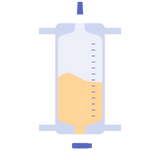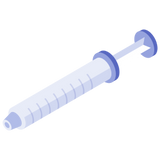
Top 10 Most Common Chronic Diseases in the U.S. and How to Prevent Them
Posted by Pankaj Dhiman on Sep 20th 2023
Chronic diseases have become a significant concern in the United States, affecting millions of people and accounting for a substantial portion of healthcare costs. These diseases often progress slowly and can have a profound impact on a person's quality of life. In this blog, we will delve into the top 10 most common chronic diseases in the U.S., providing detailed explanations of each and offering valuable tips on prevention.
1. Heart Disease
Heart disease, also known as cardiovascular disease, encompasses various conditions affecting the heart and blood vessels. These conditions include coronary artery disease, heart failure, and arrhythmias.
Prevention: Maintain a heart-healthy diet, engage in regular physical activity, quit smoking, and manage stress to reduce the risk of heart disease.
Must Read - Heart and Lung Breathlessness: Causes, Symptoms, and Prevention
2. Cancer
Cancer is characterized by uncontrolled cell growth and can occur in various parts of the body. The most common types include breast, lung, prostate, and colorectal cancer.
Prevention: Avoid tobacco and limit alcohol consumption. Regular screenings and a healthy lifestyle with a balanced diet and physical activity can reduce cancer risk.
Must Read - 10 Ways to Improve the U.S. Healthcare System in 2023
3. Chronic Respiratory Diseases
Chronic respiratory diseases like chronic obstructive pulmonary disease (COPD) and asthma affect the airways and lungs, making breathing difficult.
Prevention: Avoid smoking and exposure to pollutants. Manage allergies and asthma triggers. Regular exercise can also improve lung function.
Must Read - 9 Different Types of Wound Care Dressings and Their Uses
4. Diabetes
Diabetes is a metabolic disorder characterized by high blood sugar levels. There are two primary types: Type 1 and Type 2.
Prevention: Maintain a healthy weight, exercise regularly, and consume a balanced diet low in sugar and processed foods. Regular blood sugar monitoring is crucial.
Must Read - Sweet Syndrome: Symptoms, Causes, Diagnosis, Treatment, and Prevention
5. Stroke
A stroke occurs when there is a disruption in blood flow to the brain, often due to a clot or a burst blood vessel.
Prevention: Control blood pressure, manage cholesterol levels, exercise, and maintain a healthy diet. Avoid smoking and limit alcohol intake.
6. Alzheimer's Disease
Alzheimer's is a progressive neurodegenerative disease that affects memory, cognitive function, and behavior.
Prevention: Stay mentally and socially active, exercise regularly, eat a brain-healthy diet rich in antioxidants, and manage cardiovascular risk factors.
7. Chronic Kidney Disease
Chronic kidney disease occurs when the kidneys' function is compromised over time, leading to waste buildup in the body.
Prevention: Control blood pressure and diabetes, maintain a healthy weight, and avoid excessive use of over-the-counter pain medications.
8. Obesity
Obesity is a condition characterized by excessive body fat. It's often a precursor to many other chronic diseases.
Prevention: Adopt a balanced diet, engage in regular physical activity, and seek support if needed. Weight management is essential.
Must Read - Gastric Problem: Causes, Symptoms, Prevention & Treatment
9. Arthritis
Arthritis encompasses various joint diseases, such as osteoarthritis and rheumatoid arthritis, causing pain and reduced mobility.
Prevention: Maintain a healthy weight to reduce joint stress, exercise regularly to strengthen muscles around joints, and consider joint-friendly dietary supplements.
Have a look - Exercising and Arthritis: Benefits, Prevention, and Tips
10. Osteoporosis
Osteoporosis is a condition characterized by weak and brittle bones, increasing the risk of fractures.
Prevention: Consume a calcium-rich diet, engage in weight-bearing exercises, and ensure adequate vitamin D intake. Regular bone density screenings are essential for early detection.
Additional Tips for Preventing Chronic Diseases
- Regular Check-ups: Don't skip your routine medical check-ups. Early detection of chronic diseases can lead to better outcomes.
- Vaccinations: Stay up-to-date with vaccinations, which can prevent various infectious diseases that may lead to chronic conditions.
- Mental Health: Pay attention to your mental health. Chronic stress and mental health conditions can contribute to physical illnesses.
- Community Support: Join support groups or engage in community activities that promote healthy living and provide emotional support.
- Education: Stay informed about your health and the risk factors for chronic diseases. Knowledge is a powerful tool for prevention.
In conclusion, understanding the most common chronic diseases in the U.S. is crucial for taking proactive steps to prevent them. By making healthy lifestyle choices and being aware of risk factors, you can significantly reduce your chances of developing these conditions. Remember, prevention is key to a longer, healthier life.
If you have any concerns about your health or risk factors for chronic diseases, consult a healthcare professional for personalized guidance and support.





























































